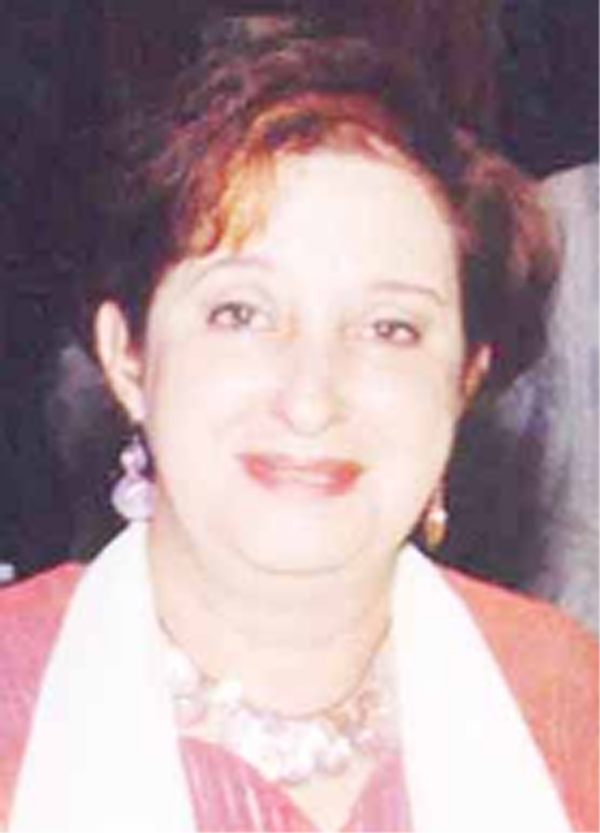PPP/C MP Gail Teixeira has defended the nomination of elected party representative Kwame McCoy to the Rights of the Child Commission, saying that the constitution does not rule out the presence of government or its nominees.

Responding to concerns raised by the Guyana Human Rights Association (GHRA) about the process for nominations to the constitutional commission and concerns about the inclusion of PPP/C Region 4 RDC Councillor McCoy, Teixeira defended the nomination process, noting that the civil society bodies consulted included the largest in the countries. “All the nominees came through a fair and transparent process,” she said, in a statement issued on Wednesday evening to respond to the GHRA’s positions. “The government as the largest representative body chose its nominees in like manner…,” she added.
The GHRA criticised the extended period it has taken to establish the commission, saying it demonstrated bad faith to civil society groups which had worked out an agreement at a multi-stakeholder forum for the establishment of all the commissions since last June. It has also called for civil society representatives to refuse nomination to the commission until McCoy’s name is withdrawn. It added that its opposition to him is based on his ineligibility as a politician and on the violation of the constitutional requirement that Government nominees come from the identified ministries, while rejecting insinuations that its position is prompted by race or any other personal characteristics.
Teixeira, who is also advisor to the president on governance, said the constitution drafters appeared to have considered the involvement of government in both the Rights of the Child Commission and Women and Gender Equality Commission. She said the GHRA’s “vitriol” against McCoy, a nominee of the Human Services Ministry, could be considered “overkill,” while adding that its arguments against his inclusion are fundamentally flawed and a violation of his rights.
Teixeira noted that under Article 212 G of the Constitution, the commission must be impartial and carry out its mandate fairly. “The drafters recognized that each of the members would bring their own perspective and skills, experience etc to the Commission,” she explained, while suggesting that since the constitution provides for governmental representation in two commissions, “its inclusion did not rule out the presence of government or its nominees.” Teixeira recalled that when the Ethnic Relations Commission was established in 2003, it was based on a similar process reached through an agreed bi-partisan process in which Dr. Frank Anthony, a member of the Progressive Youth Organization, was selected by the youth organizations and Cheryl Sampson, executive member of the National Congress of Women, the women’s arm of the PNC, was also selected through the women’s caucus. “No argument then was made as to their impartiality, links to political parties,” she noted.
Teixeira accused the GHRA of being “the most irresponsible and reckless” group in its criticism of McCoy, while denouncing its call for civil society groups to withdraw their nominees based on its objection to one of 15 nominees. She said the civil society entities consulted for nominations to the commission included the largest religious, business, labour, service, and cultural/ethnic bodies in the country.
Shirley Ferguson is also on the Commission as a nominee of the former Rights of the Child Commission.
Weakness
On the failure of the parliamentary committee to meet the original deadline for the establishment of the commission, Teixeira explained that while there was unanimity on the entities to be consulted to make nominations, there was a weakness within civil society which failed to complete the process by the original deadline.
Teixeira said the parliamentary committee unanimously agreed on entities from amongst the lists to coordinate the meetings of the various clusters. From July 2008, 81 civil society entities were approached on the Rights of the Child body, including the GHRA. She noted that each organization received guidelines on the nomination process and was encouraged to reach agreement by consensus in their respective clusters. The deadline was September 15, 2008. However, by January this year, she said several clusters had still either not met or only individually submitted their nominees. She said the GHRA was one of those organizations which attended not one of the meetings of the cluster meetings in order to reach consensus on their nominees as guided by a Resolution of the National Assembly.
According to Teixeira, the 81 NGOs for the Rights of the Child Commission identified their nominees who would occupy 13 seats on the Commission, adding that the committee had no say in these nominees. Meanwhile, the Ministry of Education and the Ministry of Human Services had one nominee each. “For the GHRA to quibble about the various entities approved by the committee to coordinate the various meetings in the various clusters is to say the least puerile, and, at best vindictive,” Teixeira declared, pointing out that no one, not in the opposition or in any civil society body, has challenged the transparency of the process.
The GHRA had also noted that another member of the commission was nominated by the Ministry of Health, where she is an employee. The Ministry of Health is not designated in the Constitution to make nominations to any of the Rights Commissions, it said. Teixeira explained that the Ministry of Health was asked to facilitate and chair the meetings to select the nominee for one of the clusters called “other,” which included 11 entities for the Rights of the Child Commission. She said the report of that cluster shows GHRA submitted its nominee and attended two meetings of that cluster, but it failed to win the support of the other civil society representatives in its cluster for its nominee.
The nominee chosen, Cynthia Massay, was proposed by the Commission on Disabilities, Teixeira said, while noting that she is not an employee of the Ministry of Health. She said Massay is recognized for her contributions to persons, and more particularly children, with disabilities and special needs. She also noted that the GHRA also submitted a nominee to the youth cluster in the name of the Rights of the Child (ROC)/GHRA and the nominee was selected and the meetings were coordinated by the President’s Youth Award Republic of Guyana, but there was no complaint by the group.
Meanwhile, Teixeira noted that after the March 2008 National Stakeholders meeting, the GHRA with some organizations made proposals on changing the constitution in relation to the establishment of the Human Rights commissions. She said it has taken years to reach this stage of appointing one of the four commissions and described it as being ironic that the GHRA focuses on changing the constitution once again and on advocating that this new commission, as provided for in the constitution, is not appointed.

